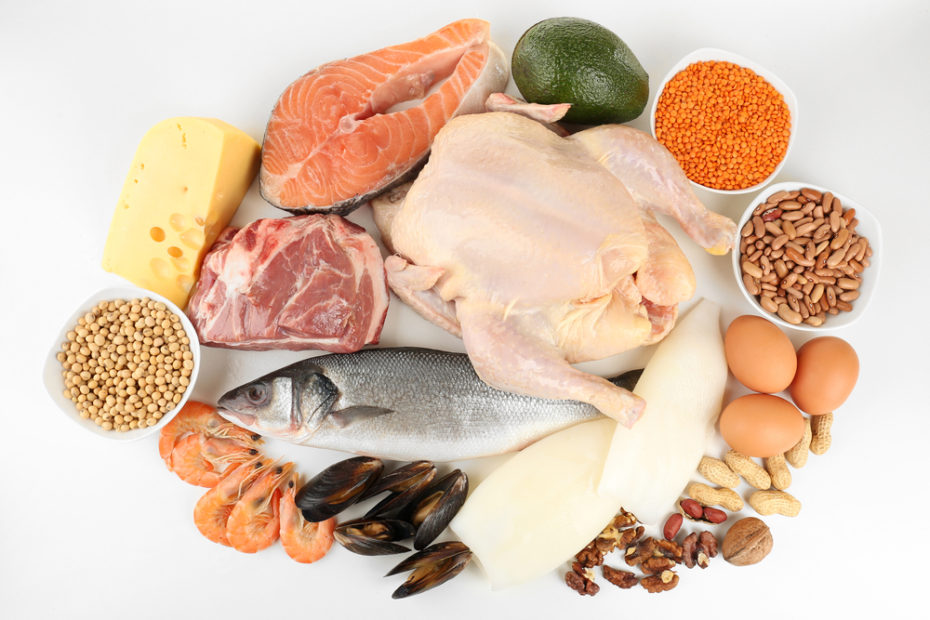Proteins are made of chains of amino acids, and are found in meats, beans, nuts and other foods. catalyze metabolic reactions, replicate DNA, respond to stimuli, provide structure to cells and organisms, and transport molecules around. Humans need 20 different amino acids, 9 of which can’t be made in the body and must be eaten.
Quick Facts
-Proteins catalyze metabolic reactions, replicate DNA, respond to stimuli, provide structure to cells and organisms, and transport molecules around
-Made of units called amino acids, which bond together into chains to form different proteins depending on which amino acids make them up and the order they are bonded in
-Amino acids are mostly made of Oxygen, Nitrogen, Carbon, and Hydrogen [11]
-We need 20 different amino acids to survive, and 9 of these cannot be made in the body so they are deemed essential
-Peptides are similar to proteins. Peptides have less than 20 to 30 amino acids, whereas proteins typically are made of hundreds
-Proteins have a half life, and in mammals this is typically 1-2 days
-BCAAs: popular for stimulating muscle maintenance and synthesis especially in athletes [12]
RDI
50g [128]
Males 19 – 70 yrs: 0.84 g / kg
Males 70+ yrs: 1.07 g /kg
Females 19 – 70 yrs: 0.75 g / kg
Females 70+ yrs: 0.94 g / kg
[106]
(25 year old, 160 lb male = 61 g minimum per day)
(25 year old, 130 lb female = 44 g minimum per day)
BCAAs: 110 – 134 mg / kg [105]
(160 lbs: 8000 – 9746 mg)
Deficiency
-Rare in the West
-30% are deficient in South Asia and Central Africa
-Symptoms include increased hunger and swollen and puffy skin, fatty liver, skin hair and nail problems, loss of muscle mass, weakened bones, stunted growth in children, weakened immune system
[106]
Toxicity
-The liver and kidneys are important in metabolizing proteins, so overconsumption may tax these organs excessively. Too much protein can increase ammonia, urea, and amino acids in the blood
-Don’t consume more than 35% of your calories from protein (about 175g on a 2000 calorie diet)
-Symptoms: nausea, headache, mood changes, weakness, fatigue, low blood pressure, hunger and food cravings, diarrhea, and slow heart rate [107]
Sources
Tilapia, eye of round steak, cod, chicken breast, egg whites, shrimp, lean ground turkey, whey protein

